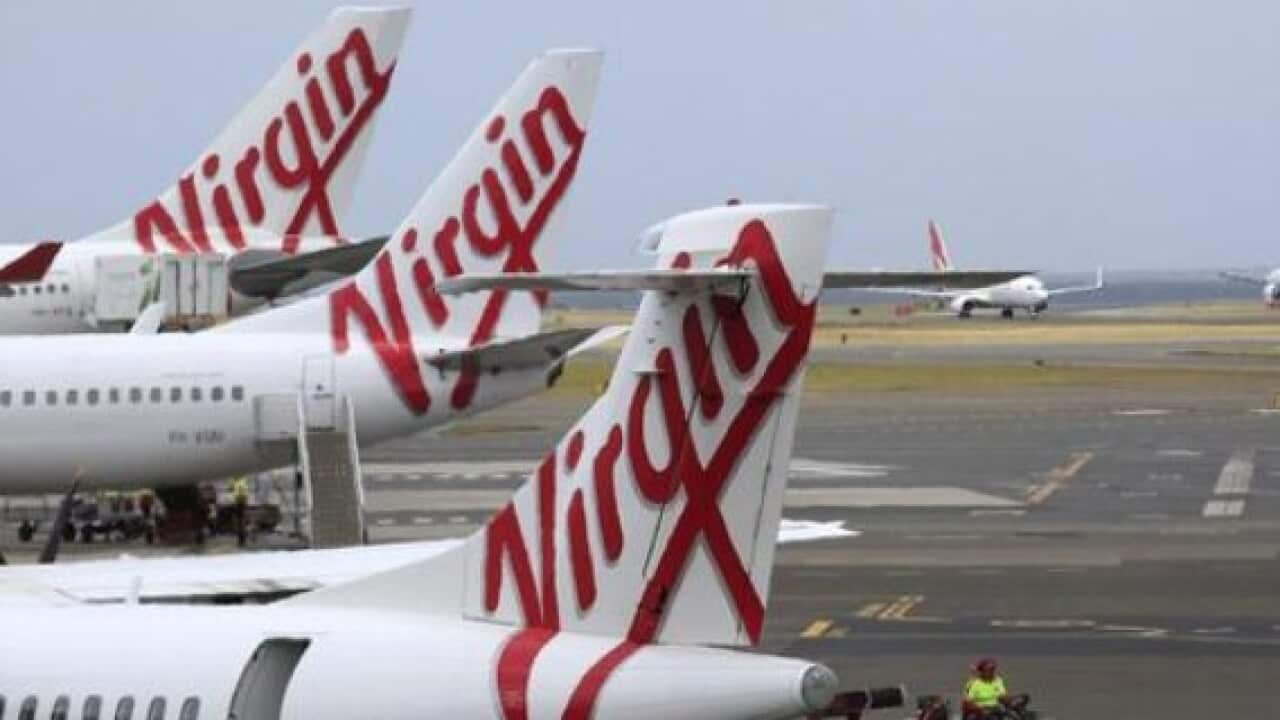Airline bosses have slammed Australia's "really, really, expensive" airports, claiming they are using their monopolies to rake in cash.
But airports say the airlines are acting in their own self interest rather than the interests of passengers.
Qantas chief executive Alan Joyce and Virgin boss Paul Scurrah appeared at the National Press Club in Canberra on Wednesday arguing for changes to airport passenger fees.

Qantas CEO Alan Joyce at the National Press Club in Canberra on Wednesday. Source: AAP
"Fees and charges from monopoly airports are excessive and damaging the economy. And airports continue to reap super profits because there is no real threat of intervention to moderate their behaviour," Mr Joyce said.
"[Australians] can't just up-stumps and fly to the next airport 15 minutes down the road. They have airlines and passengers over a barrel."

Virgin Australia CEO Paul Scurrah and Qantas CEO Alan Joyce on Wednesday. Source: AAP
"Australian airports are literally the only game in town. Their business model is based on it ... [They are] are really, really, expensive places."
He said "Australia is home to four of the five most profitable airports in the world" but "funnily enough, they don’t rank nearly that highly when travellers rank the world's best airports".
Australian Airports Association chief executive Caroline Wilkie defended the practice accusing the airlines of wanting to entrench their own position and make it harder for other airlines to compete.
"In the last year alone, Qantas made more profit than the four major Australian airports combined," she said.
"Qantas and Virgin want to squeeze competition out of the market to entrench the domestic duopoly and they know that's exactly what will happen if they turn the screws on airport investment."

Qantas planes on the tarmac at Adelaide Airport. Source: AAP
Australia's international departure fees range from $101 to $180 – depending on the site and airline – with payment split between services and security charges.
A flat rate of $60 in every ticket goes to the federal government.
Former Australian Consumer and Competition Commission boss Graeme Samuel is lobbying for the airlines, and he said changes are needed to stop monopoly behaviour.
One of the changes airlines are arguing for is a new arbitration regime, which would allow disputes with airports to escalate faster.
The AAA said this will put investment on hold, making it harder for new airlines to enter the market and challenge the major players.
"Where is the case for additional regulation when the existing dispute mechanisms are hardly ever used," Melbourne Airport boss Lyell Strambi said.

Passengers queue up at the international terminal in Sydney Airport. Source: AAP
"It would give the whip hand to incumbent airlines, allowing them to delay investment and reduce competition."
But Mr Joyce said the airports shouldn't be afraid of an independent umpire.
"You would think that where monopoly exists, there would be a straightforward dispute resolution system as a safeguard," he said.
A Productivity Commission draft report in May said a change to the arbitration regime "would need to balance the interests of an airline and airport and would not consider the broader public interest".
"We think it would profoundly change the way in which contracts are negotiated between airports and airlines, disrupt investment and harm the community," the commission's report said.
Treasurer Josh Frydenberg is expected to release the Productivity Commission report and the government's response later this year.
Additional reporting: Nick Baker












